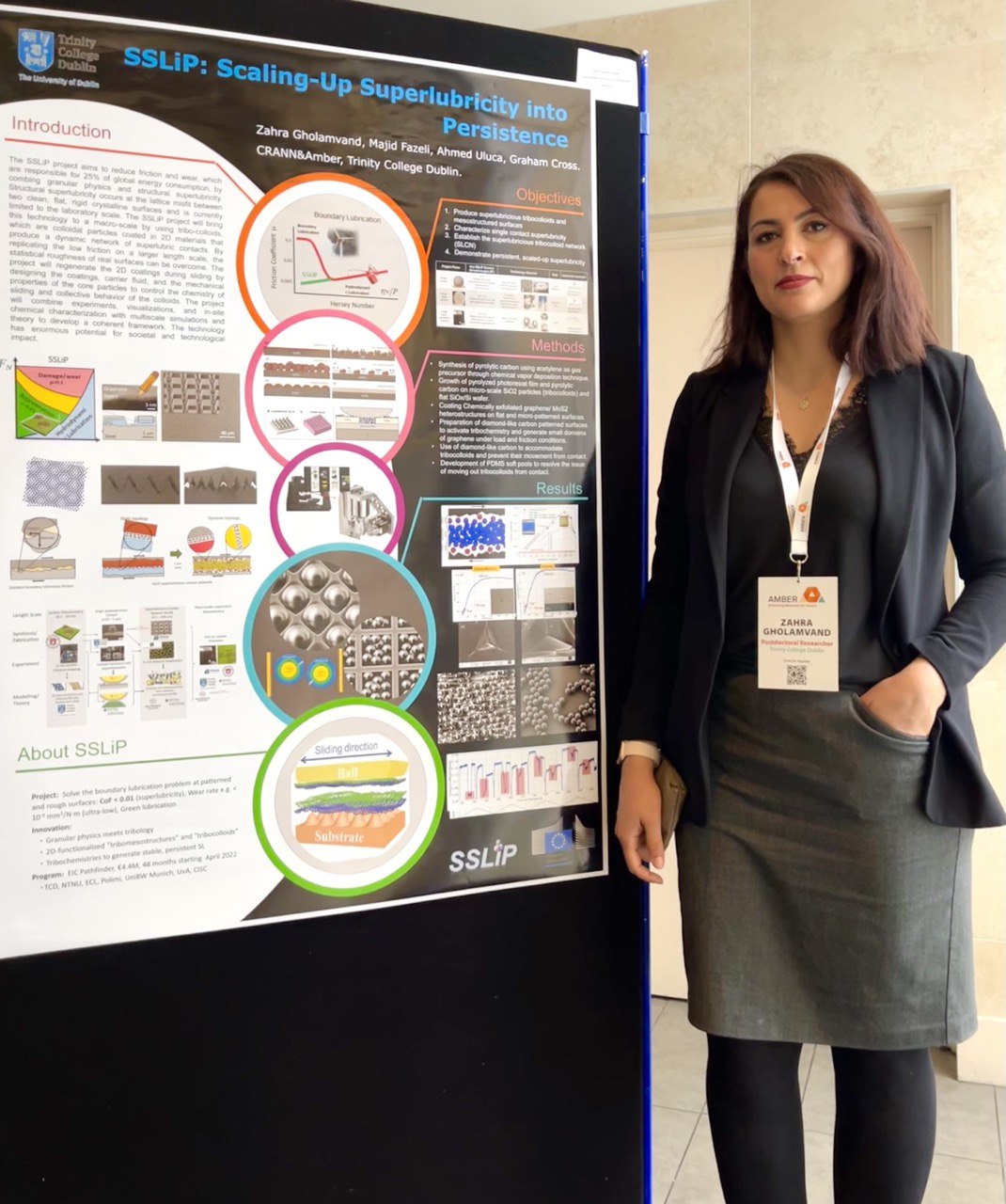SSLiP Researcher wins best poster
Friction and wear contribute to 25% of global energy consumption. Superlubricity, with ultralow friction observed in 2D materials, needs scaling for practical use. The SSLiP project aims to achieve this by employing tribo-colloids (colloidal particles coated with 2D materials) and micro-structured surfaces with 2D material coatings. These approaches create dynamic and static superlubric contacts, respectively. By controlling the coatings, carrier fluid, and mechanical properties of particles, the sliding chemistry and collective behavior of colloids can be managed. The project aims to create structurally mismatched contacting surfaces, achieving friction coefficients below 0.01 at high pressures without degradation. Using experimental work, multiscale simulations, and theoretical frameworks, SSLiP aims to advance superlubricity and enable its practical application in scenarios where conventional liquid lubricants are inadequate.

